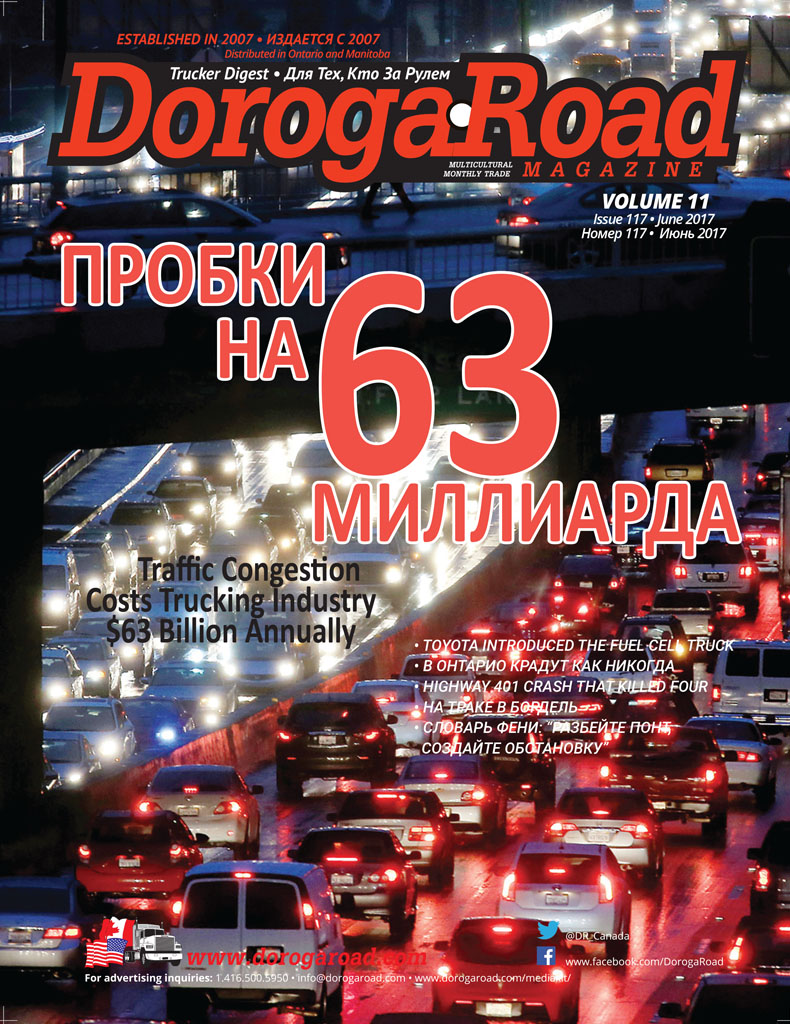In its report, the “Cost of Congestion to the Trucking Industry: 2017 Update,” the research arm of the American Trucking Associations, calculated that congestion delays on U.S. highways are for more than 996 million hours of lost productivity.
Traffic congestion on U.S. highways annually cost the trucking industry more than $63 billion in operating expenses, including wasted fuel, labor costs and vehicle wear and tear, according to a study by the American Transportation Research Institute.
In its report, the “Cost of Congestion to the Trucking Industry: 2017 Update,” the research arm of the American Trucking Associations, calculated that congestion delays on U.S. highways are for more than 996 million hours of lost productivity. That’s the equivalent of having 362,243 commercial truck drivers sitting idle for an entire year.
Broken down, congestion costs $63.70 per every hour a trucker drives.
“You start to really understand what a drain this is on the trucking industry certainly, but it has consequences for the entire supply chain for the entire U.S. economy,” said Rebecca Brewster, president of ATRI.
The most congested state in the U.S. is Florida, accounting for 8.4 percent of the total cost, or more than $5.3 billion. Texas was second at $5.1 billion. It was followed by California with $4.1 billion, New York with $3.9 billion and New Jersey with nearly $3 billion in total congestion costs. The figures are calculated for 2015, ATRI reported.
A thorny stretch of highway near Atlanta called “Spaghetti Junction,” where Interstates 285 and 85 North converge, is the worst bottleneck in the country, according to ATRI.
“The traffic that we have to deal with on a daily basis is insane,” Tim Philmon, a trucker from Middleburg, Fla., told Trucks.com. “When you sit for hours in traffic and you run out of hours and have to stop for the night in a truck stop when you are 60 miles from home, that’s definitely frustrating.”
To avoid traveling into a well-known congested area, Philmon said he will drive out of his way an extra 100 miles so that he can still make his delivery on time.
“If you miss your delivery time, it can mess up your whole day or even your whole week,” he said.
Of the 11.2 million registered commercial vehicles in the U.S., the average congestion cost per truck was $5,664 in 2015, up from $4,546 a year earlier.
The 2015 congestion study cited a drastic increase in the number of traffic incidents, including a 3.8 percent increase in police-reported crashes and a 7.2 percent increase in fatalities in motor vehicle crashes on U.S. roadways – the largest percentage increase in nearly 50 years, ATRI said.
The ATRI study utilized a variety of data sources for its report, including its truck GPS data from 2015 and Federal Highway Administration reports.
Traffic congestion tended to be the most severe in urban areas with 88 percent of the congestion costs concentrated on only 17 percent of the National Highway System network, according to ATRI.
Ninety-one percent of the total congestion cost occurred in metropolitan areas. The five most congested metropolitan areas are New York-Newark, followed by Chicago, Miami-Fort Lauderdale, Philadelphia and Dallas-Fort Worth.
Only $5.8 billion in total congestion costs occurred in rural areas.
Henry Albert, an owner-operator from Statesville, N.C., said he wishes large cities would build bypasses for truckers to travel around congested cities with no off-ramps, which would allow trucks to navigate around rush hour and avoid stop-and-go traffic situations.
However, he said while he hates sitting in traffic, “It’s part of the job.”
“When I bid a job, I take into account whether I will be going through Atlanta or another high-traffic area that may cause me delays,” Albert told Trucks.com. “Traffic definitely costs me, but I try to buffer in some time so delays don’t mess up my week.”








 Newspaper about
Newspaper about 